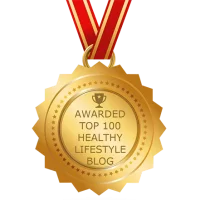Heart disease is the number one killer in the United States. According to the American Heart Association, heart disease is the leading cause of death for both men and women. Risk factors for heart disease include high blood pressure, high blood cholesterol, family history, smoking, and obesity, several conditions which are highly related to diet and lifestyle.
One of the most important steps you take to improve your heart health starts with what you put on your plate. You can greatly reduce your risk of developing heart disease by eating a heart-healthy diet that emphasizes whole-foods such as fruits, vegetables, whole grains, nuts, seeds and legumes. Like Hippocrates stated several years ago, “Let your food be your medicine, and your medicine be your food.”
Cutting back on unhealthy foods such as: processed meats, fried foods, high-fat dairy products, sodium, and fast foods serves as a great strategy to reduce your risk of heart disease.
One approach to reduce intake of unhealthy fats and cholesterol from your diet is to consume less red meats, which are high in animal fat. Dr Cynthia Thaik does not emphasize the need to start an all-plant based diet, but moderation is the key. According to the USDA lean cuts of beef contain less than 10 grams of total fat and approximately 4.5 grams of saturated fat. The American Heart Association recommends consuming less than 7 percent of total daily calories from saturated fats, therefore if you are planning on including meat in your meals select extra-lean cuts.
Other foods that you should limit include fast foods and fried foods, which are both very high in unhealthy saturated fats. Saturated fats can also be found in high-fat dairy products such as butter, cream, milk, and cheese. For a heart-healthy diet include low-fat dairy products and limit total fat consumption to less than 35 percent of your daily total calories.
Lastly, make sure to monitor your sodium intake. The American Heart Association recommends that your diet should consume no more than 2,300 mg of salt per day, which is equivalent to about 1 teaspoon. Eating too much salt may contribute to high blood pressure and increase risk for heart disease. To lower dietary sodium intake limit processed foods, canned foods, and fast foods.
Always remember that good nutrition is essential for your heart health. Start eating healthy today and limit the unhealthy foods for your heart.
References:
http://www.heart.org/HEARTORG/GettingHealthy/GettingHealthy_UCM_001078_SubHomePage.jsp
http://www.huffingtonpost.com/2013/02/11/worst-heart-foods_n_2624859.html#slide=2066425




